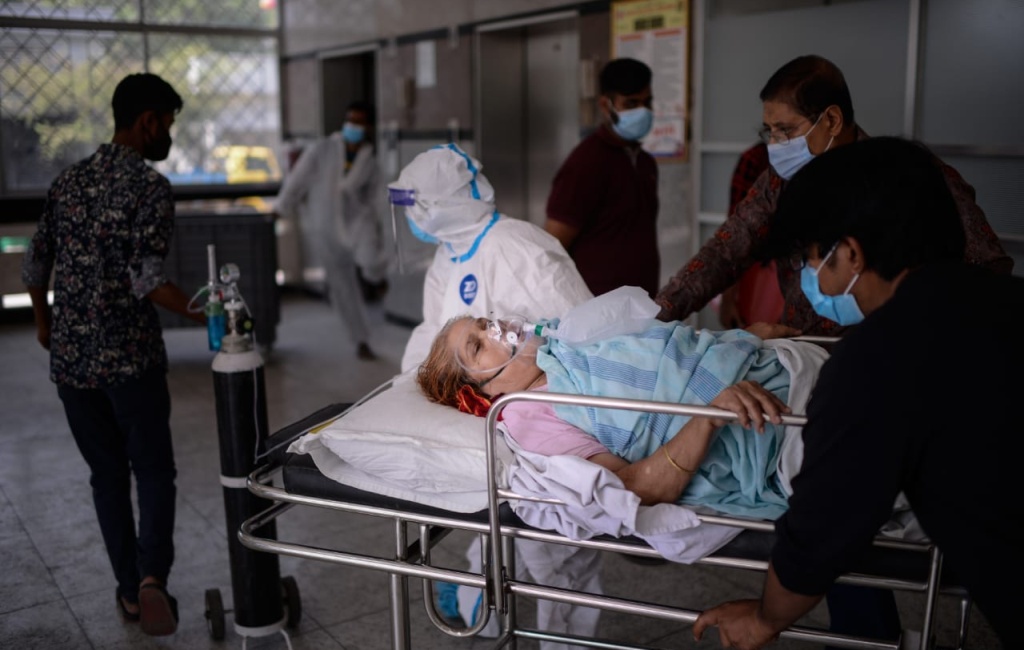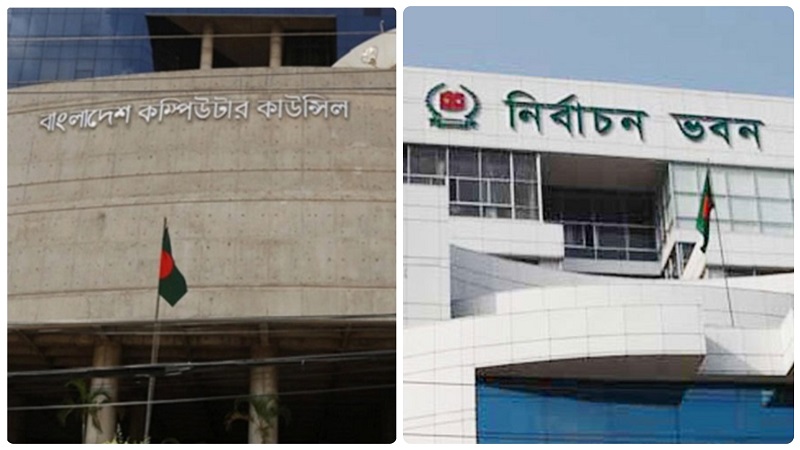The government needs to be held accountable for the recent surge in Covid-19 transmission in Bangladesh due to the corruption in the health sector, according to a study conducted by Transparency International Bangladesh (TIB).
Dr Iftekharuzzaman, executive director of TIB, said the risk of Covid-19 infection had increased in the country due to the government’s insincerity in enforcing the law to force people to maintain its guidelines and apathy on the part of a section of people in maintaining health safety rules.
He was speaking while presenting the findings of the study, “Tackling Coronavirus Pandemic: Governance Challenges in Covid-19 Vaccine Management”, at a virtual press conference on Tuesday.
"The infection rate of coronavirus has increased due to a violation of health rules for the last one and a half years along with the contradictory behaviour of the government. The government didn't have any specific action plan," Dr Iftekharuzzaman said.
Bangladesh has in recent times been experiencing an increase in Covid-19 cases, especially in the border areas.
The TIB executive director also said the government was much more active in controlling the flow of information than in controlling corruption in the country.
“The government has been trying to control the disclosure of information since the beginning of the Covid-19 pandemic and this trend has strengthened further. We think the government is a hundred times more active in controlling the disclosure of information than in controlling corruption,” Iftekharuzzaman said.
As many as 247 journalists were condemned and tortured in 2020 for disclosing information on Covid-19, while 85 journalists were sued during the pandemic under the Digital Security Act 2018, the study said.
Vaccine mismanagement
The study also revealed that the procurement rules of the government were not followed in the purchase of the Covid-19 vaccine from Serum Institute of India (SII).
The procurement plan and contract execution notice were not published on the CPTU (Central Procurement Technical Unit) website and there was no evidence of negotiations, which was a violation of procurement rules.
There was an inclusion of a third party in vaccine imports without showing logical reasons and Bangladesh bought the vaccines at a higher price than the countries of the European Union and African Union and Sri Lanka and Nepal, the study notes.
If the government had bought the vaccine directly from SII, Bangladesh could have saved money or procured more vaccines. But now, the third party will make a profit of around Tk77 for each dose, which means a profit margin of Tk38.37 crore from supplying five million vaccine shots. Moreover, the total profit from importing 30 million doses will be Tk231 crore.
Dr Iftekharuzzaman said the government had benefited a third party by assigning it to collect vaccines which the state could have done directly.
The government had announced that vaccines would be given to around 140 million people or 80% of the population, but no specific strategy and pragmatic framework had so far been formulated for the challenging job to be accomplished, he added.
According to the study, outgoing migrant workers suffered a lot as they were not brought under timely vaccination and were uncertain as to when they would be able to go back to their workplaces. They each had to spend an extra TK 60-70 thousand for not having vaccination certificates.
On the other hand, the 3rd and 4th class workers in 56% organizations, cleaners in 26.6% organizations, and field-level workers in 10.8% organizations were not covered under vaccination. The vaccination rate among women was only 37% ,which is very low, the study revealed.
Corruption in health sector
More than a year after the outbreak of the pandemic, Bangladesh has 664 government ICU beds allocated for Covid patients across the country. Of them, 364 are in Dhaka city, 33 in Chittagong city and 256 in the remaining 62 districts.
Although the government planned to install 10 ICU beds in every district, it was yet to be implemented.
Due to the ICU bed crisis at government hospitals, patients were forced to seek expensive treatment in private hospitals where the average cost of Covid-19 treatment was more than Tk5 lakh.
On the other hand, Tk15-20 lakh per person were needed in the appointment of technical manpower in the health department.













